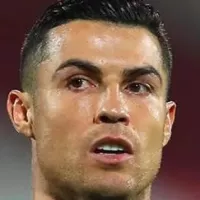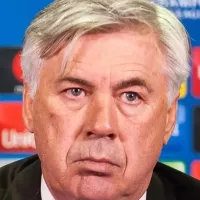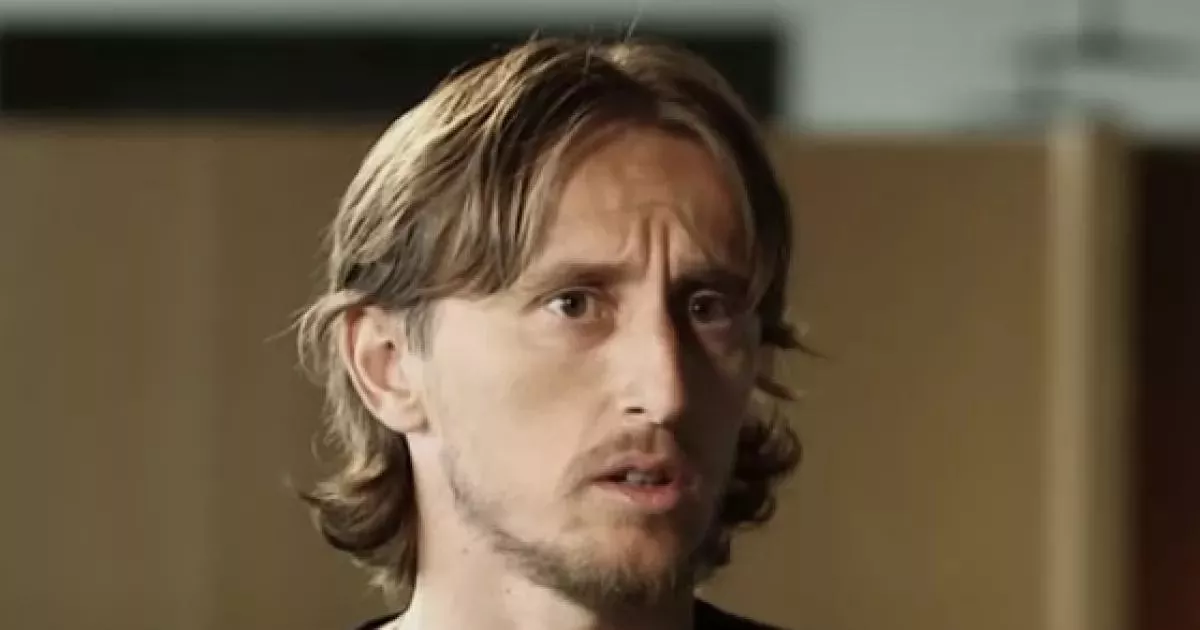A success timeline featuring the most significant achievements of Luka Modrić.
Luka Modrić is a highly decorated Croatian professional footballer renowned as one of the greatest midfielders ever and the best Croatian player in history. He currently plays as a central midfielder for Serie A club AC Milan and serves as the captain of the Croatia national team. His career boasts numerous titles and individual accolades, solidifying his place among football legends.
1994: Recognition After Romário
Due to his club, and national team performance at the 2018 FIFA World Cup, where he also received the Golden Ball, in August and September Modrić won The Best FIFA Men's Player Award. Modrić was the first player to win both the World Cup Golden Ball and the Best FIFA Men's Player of the Year Award after Romário in 1994.
1998: Recognition Since 1998
Due to his club, and national team performance at the 2018 FIFA World Cup, where he also received the Golden Ball, in August and September Modrić won the UEFA Men's Player of the Year Award. Modrić was the first player to win both the World Cup Golden Ball and the UEFA Men's Player of the Year Award in the same year since Ronaldo in 1998.
1999: Dražen Ladić's Record
In 1999, Dražen Ladić set a record as the oldest player ever to play a game for Croatia.
2003: Loan to Zrinjski Mostar
In 2003, after a season with Dinamo Zagreb's youth side, Luka Modrić was loaned to Zrinjski Mostar in the Bosnian Premier League, becoming Bosnian Premier League Player of the Year.
2004: Eastern Europe Ballon d'Or Winner Since 2004
Due to his club, and national team performance at the 2018 FIFA World Cup, where he also received the Golden Ball, in December 2018, he added the Ballon d'Or to his personal tally. Modrić was the first footballer from Eastern Europe to win a Ballon d'Or after Andriy Shevchenko in 2004.
2004: Loan to Inter Zaprešić
In 2004, Luka Modrić was loaned to Inter Zaprešić, helping the team achieve second position in the Prva HNL and winning the Croatian Football Hope of the Year award.
2006: Dinamo Zagreb Won the League
In the 2006–07 season, Dinamo again won the league, with Modrić making a similar contribution.
2007: Croatian Footballer of the Year
Between 2007 and 2024, Luka Modrić has also been named Croatian Footballer of the Year a record thirteen times.
2007: Ending Messi-Ronaldo Domination
Due to his club, and national team performance at the 2018 FIFA World Cup, where he also received the Golden Ball, in December 2018, he added the Ballon d'Or to his personal tally, marking the first time since 2007 that the award was not won by Lionel Messi or Cristiano Ronaldo.
2007: Ballon d'Or Award
In 2007, Luka Modrić won the Ballon d'Or, becoming the first player other than Lionel Messi or Cristiano Ronaldo to win the award since 2007.
2007: UEFA Cup Qualification Attempt
In the 2007–08 season, Luka Modrić as team captain, led Dinamo's attempt to qualify for the 2007–08 UEFA Cup. Modrić converted a penalty against Ajax.
June 2008: Euro 2008
In June 2008, Luka Modrić scored Croatia's first goal of Euro 2008, converting a penalty in the fourth minute of their 1–0 victory against hosts Austria, becoming the team's youngest ever goalscorer at the European Championships. At the end of the competition, Modrić was included in the UEFA Team of the Tournament.
2008: Euro 2008 Team of the Tournament
At Euro 2008, Luka Modrić was named in the Team of the Tournament.
2008: Youngest Goalscorer Record
In 2008, Luka Modrić held the record for the youngest goalscorer that he set in 2008.
2010: UEFA Champions League Qualification
In 2010, Luka Modrić led Spurs to UEFA Champions League qualification, which was the club’s first qualification in almost 50 years.
2010: Tottenham Hotspur Player of the Year
In 2010, Modrić played 32 Premier League matches, achieving high passing stats and was voted the Tottenham Hotspur Player of the Year. Sir Alex Ferguson also mentioned he would have chosen Modrić as his Player of the Year.
January 2011: Praise From Redknapp
After a draw against Manchester United at White Hart Lane in January 2011, Harry Redknapp praised Luka Modrić.
2011: Premier League Midfielder Rankings
By the 2011–12 season, Luka Modrić was statistically among the top-rated central and all-round midfielders across the top five leagues, alongside players like Xabi Alonso, Andrea Pirlo, Bastian Schweinsteiger and Xavi.
August 2012: Transfer to Real Madrid
On August 27, 2012, Real Madrid announced an agreement with Tottenham for Modrić's transfer for approximately £30 million. He signed a five-year contract. On August 29, he debuted against Barcelona in the Supercopa de España, winning his first trophy with the club. However, he initially struggled due to lack of pre-season training.
March 2013: Key Performances for Real Madrid
In March 2013, Modrić assisted Sergio Ramos in El Clásico, contributing to a Real Madrid victory. He also scored a crucial goal against Manchester United in the Champions League, marking a turning point in his Real Madrid career. Furthermore, he scored against Mallorca. From March 2013, Modrić's form improved, becoming the player with the most passes completed in his team.
2013: Key Player for Real Madrid
In 2013, with the arrival of Carlo Ancelotti, Modrić became a frequent starter, showcasing passing accuracy and ball recoveries. He scored his first goal of the 2013-14 season in the Champions League against Copenhagen and won the 2013–14 Copa del Rey.
2013: Champions League Title
In his second season, 2013, Luka Modrić won the Champions League title and was named in the squad of the season.
2013: Tackles and Passes
In the first half of the 2013–14 season, Luka Modrić made more tackles (56) than any other Real Madrid player in La Liga with an average number of 2.86 tackles per match, as well as making the most completed passes (878) in the opposition half of the pitch among Real Madrid players.
2014: Passing Accuracy
In 2014, Luka Modrić had the highest passing accuracy in La Liga (90%), also the highest of any midfielder in Europe's top five leagues. For all of 2014, Modrić's dribble attempts (75) at a success rate of 76% were second in Europe's top five leagues.
2015: Champions League Titles
From 2015, Luka Modrić was a key member of Madrid’s three consecutive Champions League titles from 2015–16 to 2017–18, and was named into the squad of the season each time.
2015: Champions League and La Liga Team of the Season
In 2015, Modrić was a regular in the starting line-up when Real Madrid won the 2015–16 Champions League. He was included in both Champions League, and La Liga's team of the season. For the second time, he also received the LFP award for the "Best Midfielder" of the Spanish first league. He was for the second time included in the FIFA FIFPro World XI.
January 2016: Relationship with Zinedine Zidane
In January 2016, with the arrival of Zinedine Zidane as manager, Modrić's importance grew, being described as the "master of the game". On February 7, he scored a winning goal against Granada.
2016: Real Madrid Won La Liga
In 2016, Modrić was a regular starter when Real Madrid won the 2016–17 La Liga, as well as the 2016–17 UEFA Champions League, where he provided the assist for Cristiano Ronaldo's second goal in the final against Juventus.
2016: Zidane predicts Modrić would win Ballon d'Or
In 2016, Zinedine Zidane included Luka Modrić in his best XI currently playing and predicted that Modrić would win the Ballon d'Or award.
2016: Euro 2016 Match-Winning Goal
In 2016, during the Euro 2016 tournament, Luka Modrić scored the match-winning goal in Croatia's opening group stage match against Turkey. He was named Man of the Match. A muscle injury forced Modrić to miss the crucial fixture against Spain. Croatia lost to Portugal 0–1 in extra-time in the round of 16.
January 2017: Inclusion in UEFA Team of the Year
In January 2017, Modrić was included in the UEFA Team of the Year (2016) for the first time.
March 2017: 200th Match for Real Madrid
On March 12, 2017, Modrić played his 200th match for Real Madrid in a 2–1 win over Real Betis.
2017: Champions League Titles
From 2017, Luka Modrić was a key member of Madrid’s three consecutive Champions League titles from 2015–16 to 2017–18, and was named into the squad of the season each time.
January 2018: Inclusion in UEFA Team of the Year
In January 2018, Modrić was included in the UEFA Team of the Year (2017) for the second time.
2018: World Cup Golden Ball
In 2018, Luka Modrić led Croatia to the World Cup final, winning the Golden Ball as the tournament’s best player. He was also named the BTA Best Balkan Athlete of the Year for 2018.
2018: Ballon d'Or Winner
In 2018, Luka Modrić won the Ballon d'Or, becoming the first player other than Lionel Messi or Cristiano Ronaldo to win the award since 2007.
January 2019: Scoring in consecutive league games
In January 2019, Luka Modrić scored in two consecutive league games for Real Madrid, first in a 1–2 away win against Real Betis and then in a 2–0 home win against Sevilla. Also in January 2019 he was included in the UEFA Team of the Year (2018) for the third time in his career.
March 2019: Modrić appears on Hrvatska pošta postage stamp
In March 2019, Luka Modrić was honored by appearing on a Hrvatska pošta postage stamp. Croatian universities published graduation theses researching how his recognition helped Croatia's nation branding and the national football team's recognition.
2019: Golden Foot Award
In 2019, Luka Modrić was awarded the Golden Foot award for career results and personality.
January 2020: Scoring the 100th career goal
On 8 January 2020, Luka Modrić scored his fifth goal of the season and 100th career goal in a 3–1 victory against Valencia in the semi-finals of 2019–20 Supercopa de España. On 12 January 2020, he successfully converted a penalty in a shootout as Real Madrid beat Atlético 4–1 on penalties in the final.
October 2020: Scoring in Champions League against Shakhtar Donetsk
On 21 October 2020, Luka Modrić scored his first goal of the 2020–21 season in a Champions League 3–2 defeat to Shakhtar Donetsk, becoming the fourth player to score in the competition aged 35 or more for the club. Three days later, in October 2020, he scored his first Clásico goal as Real Madrid defeated Barcelona 3–1.
March 2021: Most Capped Player
In March 2021, Luka Modrić became the country's most capped player.
March 2021: Equalling and Surpassing Srna's Record
On 24 March 2021, Luka Modrić equalled Darijo Srna as the most capped player in Croatian national team history. Three days later, in a World Cup qualifying victory over Cyprus, he surpassed Srna's record.
December 2021: 100th Champions League game
On 7 December 2021, Luka Modrić played his 100th Champions League game and was named Man of the Match in a 2–0 victory over Inter Milan.
January 2022: Supercopa de España Final
On 16 January 2022, Luka Modrić scored the first goal in the 2022 Supercopa de España Final and was named Man of the Match, as Real Madrid defeated Athletic Bilbao 2–0. The goal made him the oldest goalscorer in the history of the competition.
2022: World Cup Bronze Ball
At the 2022 World Cup, Luka Modrić led the team to a third-place finish, winning the Bronze Ball as the tournament’s third best player.
February 2023: Inclusion in FIFA FIFPro World XI
In February 2023, Luka Modrić was included for the sixth time in the FIFA FIFPro World XI.
June 2023: UEFA Nations League Semi-Final Victory
On 14 June 2023, Luka Modrić led Croatia to victory over the Netherlands in the semi-finals of the 2023 UEFA Nations League Finals, where he was named Man of the Match. Croatia eventually lost to Spain in the final.
April 2024: Oldest Real Madrid player in Champions League
On 30 April 2024, Luka Modrić became the oldest Real Madrid player to make an appearance in the Champions League, at the age of 38 years and 234 days.
July 2024: Contract extended until 2025 and becoming captain
On 17 July 2024, Luka Modrić extended his contract until 2025 and became captain of the team following the departure of Nacho.
January 2025: Scoring first goal of the season and joining top ten on all-time appearances
On 3 January 2025, Luka Modrić scored his first goal of the 2024–25 season during a 2–1 away victory over Valencia, and became the oldest player to score for Real Madrid in all competitions. Additionally, in January 2025, he made his 561st appearance for the club, joining the top ten on Real Madrid's all-time appearances list.
2025: Marca proclaims Modrić as the best number 10 in Real Madrid's history
In 2025, Marca proclaimed Luka Modrić as the best number 10 in the history of Real Madrid.
Mentioned in this timeline

Cristiano Ronaldo often nicknamed CR is a Portuguese professional footballer...

Lionel Messi is an Argentine professional footballer widely considered one...
Azerbaijan is a transcontinental and landlocked country located in the...

Carlo Ancelotti nicknamed Carletto and Don Carlo is a highly...

Sergio Ramos is a highly decorated Spanish professional footballer renowned...
La Liga officially LaLiga EA Sports is the top professional...
Trending
15 minutes ago Rugby Property Assets acquires Cavendish Walk Shopping Centre in Merseyside for £1.5m.
1 hour ago Medvedev, Bublik, and Rublev advanced; Medvedev seeks rankings change in Dubai.

1 hour ago Lauren Chapin, 'Father Knows Best' Child Star, Passes Away at 80
2 hours ago Tim NeCastro Announces Retirement as Erie Insurance CEO After 10 Years

1 hour ago Scientists speculate on insights from government's UFO files release directed by Trump.

4 hours ago Apple MacBook Pro: Touchscreen, Dynamic Island, and New Interface Coming Soon.
Popular

Jesse Jackson is an American civil rights activist politician and...

Susan Rice is an American diplomat and public official prominent...

Barack Obama the th U S President - was the...

Michael Joseph Jackson the King of Pop was a highly...

XXXTentacion born Jahseh Dwayne Ricardo Onfroy was a controversial yet...

Bernie Sanders is a prominent American politician currently serving as...
